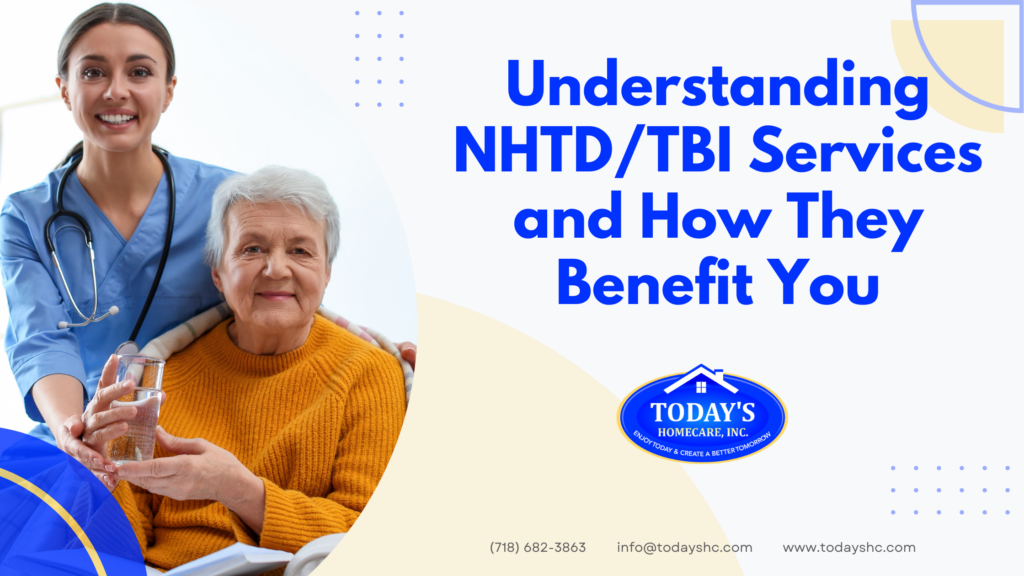NHTD (Nursing Home Transition and Diversion) and TBI (Traumatic Brain Injury) services provide specialized care for individuals transitioning from nursing homes or those with traumatic brain injuries. These services are essential for ensuring that patients receive the care they need while maintaining their independence.
What Are NHTD/TBI Services?
NHTD/TBI services are designed to support individuals with traumatic brain injuries and those transitioning from nursing homes. These programs offer a range of services to help patients live independently in their communities.
Components of NHTD/TBI Services
- Case Management: Coordinating care and services for patients.
- Personal Care Aides: Assisting with daily living activities.
- Skilled Nursing: Providing medical care at home.
- Rehabilitation Services: Physical, occupational, and speech therapy.
- Assistive Technology: Tools and devices to aid in daily living.
Benefits of NHTD/TBI Services
NHTD/TBI services offer numerous benefits, improving the quality of life for patients and their families.
1. Enhanced Independence
These services support patients in living independently, allowing them to stay in their homes rather than institutional settings. This fosters a sense of autonomy and dignity.
2. Comprehensive Care
NHTD/TBI services provide a holistic approach to care, addressing medical, emotional, and social needs. This comprehensive care ensures that all aspects of a patient’s well-being are considered.
3. Improved Quality of Life
By receiving care in a familiar environment, patients often experience better mental and emotional health. The personalized care plans also contribute to a higher quality of life.
4. Family Involvement
These services encourage family involvement, providing support and resources to help families care for their loved ones. This collaboration can lead to better outcomes and stronger family bonds.
5. Cost-Effective
NHTD/TBI services can be more cost-effective than long-term care facilities. They reduce the financial burden on families by providing affordable care options.
How to Access NHTD/TBI Services
Accessing NHTD/TBI services involves several steps. Here’s a guide to help you navigate the process.
1. Determine Eligibility
Check if you or your loved one is eligible for NHTD/TBI services. Eligibility criteria include having a traumatic brain injury or transitioning from a nursing home.
2. Contact a Service Provider
Reach out to a reputable service provider like Today’s Homecare, Inc. to learn more about their NHTD/TBI programs.
3. Complete an Assessment
An assessment will be conducted to determine the specific needs and develop a personalized care plan.
4. Develop a Care Plan
Work with the service provider to create a comprehensive care plan tailored to the patient’s needs.
5. Implement the Care Plan
Once the care plan is in place, services will begin, and regular monitoring will ensure the plan is effective.
Common Challenges and Solutions
Navigating NHTD/TBI services can come with challenges. Here are some common issues and how to address them.
Understanding Eligibility
Eligibility criteria can be complex. Speak with a case manager or use resources provided by service providers to clarify the requirements.
Access to Services
In some areas, access to NHTD/TBI services may be limited. Explore different service providers and programs to find the best fit.
Financial Considerations
While NHTD/TBI services can be cost-effective, understanding the financial aspects is essential. Discuss payment options with the service provider to find the most affordable solution.
Conclusion
NHTD/TBI services are vital for individuals with traumatic brain injuries and those transitioning from nursing homes. These services enhance independence, improve quality of life, and provide comprehensive care. By understanding the benefits and how to access these services, you can ensure that you or your loved one receives the necessary support.
For more information on NHTD/TBI services, visit Today’s Homecare, Inc.






